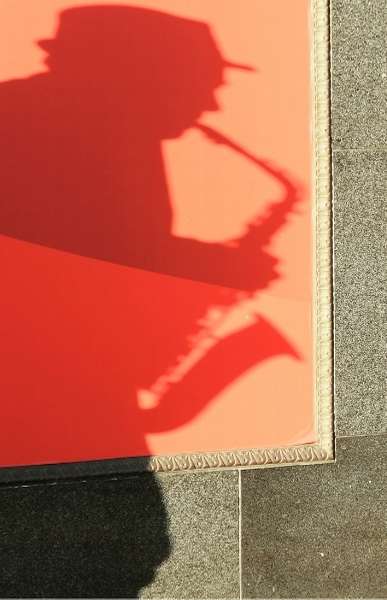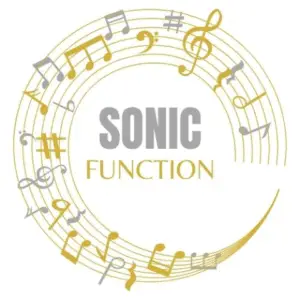
In the united states, many elementary and junior high schools will start offering band and orchestra classes to students in the fifth or sixth grade…this also happens to be about the same age children begin to wear braces to repair crooked teeth.
With all that new, expensive dental work in your mouth, you might be wondering, “can I play the saxophone if I wear braces?:
Yes, you can! Wearing braces does not prevent students from playing the saxophone. However, it does introduce a few challenges that will need to be addressed so that they can still play comfortably and not cause damage to their lips, teeth, or the braces themselves.
Just like with playing sports, with a little care and forethought, you can get through those awkward braces year and still come out a better saxophonist. I had braces from 7th through 9th grade and still practiced, performed, and grew as a sax player.
I’m Getting Braces, How Will That Affect My Sax Playing?
Lucky for us, our instrument puts pressure on the bottoms of our teeth and not the fronts like brass instruments. Trumpet, horn, and trombone players are putting a great deal of pressure up against their lips which, in turn, pushes the inside of their lips right up against the brackets of braces.
Most of the time, after you’ve gotten more used to wearing braces, you won’t even notice them while you’re playing…I say most of the time because this changes for a few days after an adjustment.
Most people that have braces will go to the orthodontist once a week to get a checkup. Loose brackets can be re-glued to teeth, any wires that may be poking or scraping can be clipped, and the doctor can check on the progress.
Usually, some minor tightening of the bands will happen and some soreness will result…but, every now and then you’d get a major adjustment. Tighter bands will be wound around the brackets in order to force a tooth to twist or move into the correct position, resulting in major pain and soreness for several days after the appointment.
Don’t get me wrong, the end results were worth a little bit of misery…but for at least a day or two after these major adjustments playing my saxophone was all but impossible.
More good news here too. Being a beginning sax player (no matter your age in this case) means you’re not likely preparing for gigs all the time so taking a day or two off from practice won’t totally derail your progress as a player. In fact, you can use this time to work on some other aspects of your music training.
What If I Have A Concert Coming Up Right After My Braces Are Being Adjusted?
It always seemed to happen to me. The band would have a concert a day or two after one of those painful adjustments. Even as a kid I knew playing for a 60-minute concert wasn’t going to be fun with a mouthful of pain.
You have a few options here:
- Play Through the Pain
- Ask to be Excused From the Concert All Together
- Ask Your Music Teacher If You Can Play Every Other Song or Take Breaks
- Ask Your Orthodontist For A Lighter Adjustment
Out of these options I like the last two the best.
Play Through the Pain
Playing through the pain isn’t fun…I’ve done it. All it does is cause you to need extra time to recover and can even cause you to break into a fever which can lead to more problems. Not Good!
Ask to be Excused From the Concert
Asking to be excused from the concert is probably overkill. Concerts are fun and a big part of the reason you’ve started playing an instrument. It also affects the rest of the band since playing in the band is a “team sport.” It may not seem like a big deal early on since so many people are playing the saxophone part…one less player isn’t going to make a difference. However, down the line, you’ll start to have smaller sections, more diverse music arrangements leading to more exposed individual parts, and likely some solos.
This makes missing a concert a huge deal…it’s like having one less player on the football field. The whole team will be impacted.
Get Permission to Take Breaks During the Concert
A good compromise is to let your music teacher know what’s going on and ask to sit out a few songs or take some breaks while playing. You can still be with the group and get some solid performance time in, but it will give your mouth a break every now and then.
Just stay seated with your section and keep your instrument positioned like you’re still playing, but rest your mouth. Keep pressing the keys and counting like you normally would…just don’t put air through the horn. When you’re rested up or are about to get to an important part of the music, you can start playing again.
Get A Lighter Adjustment
I like this option the best because it avoids the most pain. If you know you have a concert coming up a day or two after your orthodontist appointment, just ask your doctor if he or she can give you a lighter adjustment and postpone any major band upgrades until your next appointment.
Most orthodontists should be responsive to the needs and issues of their patients so you shouldn’t have any problem with this. I know some kids don’t always feel heard by adults, so you can always get your folks to ask for you.
I think this will help you gain rapport with your doctor. It shows maturity and forward-thinking about responsibilities you have and how you try to take care of them.
It Hurts To Play My Saxophone, What Can I Do If I Can’t Play?

It might not be too obvious when you’re just starting out as a saxophone player, but there is so much to learn about your instrument and playing that isn’t related to putting air through your horn. Here’s a list of some things you can do when it hurts to play your saxophone:
- Listen To A New Track and Following Along With The Sheet Music
- Work On Your Piano/Keyboard Skills
- Develop Your Aural Skills With Some Ear Training Exercises
- Give Your Saxophone a Proper Cleaning
- If You’re Into Jazz, Listen to Some Classical Music and Vice Versa
Listen to Music and Follow Along
Like I mentioned above, you can always “play” by following along with a recording. Hold your sax like you’re playing and press the keys as you follow along with the sheet music. This will help you develop muscle memory in your hands and help you become a better sight-reader (playing music you’re seeing for the first time.)
Work on Your Piano Skills
One thing I wish I had concentrated on more as a beginning saxophone player was my piano skills. I’m not saying you have to pour as much into playing the piano as you do the saxophone, but just learning how to get around on the keyboard and learning basic chords will make you a better musician. You will learn how music is pieced together…how chords work, how melodies sound over harmonies, and so much more!
Ear Training
Arguably the best thing you can do to develop as a musician is developing your ear. Listen to music and try to figure out what is being played…don’t worry about playing this back on your saxophone yet, it won’t sound right anyway since your saxophone is a transposing instrument. Just use a piano or keyboard for now.
The important thing here is to listen carefully to the music and get it written down as close to correct as you can.
Another exercise you can do is to play a note on the piano and sing it, then try to sing the next note BEFORE you play it. Try this out between different note distances…this is called intervals.
Clean Your Sax
Be very careful here…don’t dunk your sax into the bathtub or take a scouring pad to it, but give your saxophone a good look. If you notice fingerprints and scuffs use a fine cloth to wipe them off. Most saxes should come with a cloth.
I would also use caution with any chemical cleaners since they can eat away the lacquer that covers your sax. A little bit of dish detergent in a bowl of water should be fine to use…this is also the cleaning solution I recommend you soak your mouthpiece in every now and then.
Listen to All Styles of Music
Listen to all sorts of music. If you like jazz, listen to orchestral or Celtic. If you’re into sax quartet music, listen to choral music or klezmer. Basically, listen to everything you can…if you think you might hate it, listen to it anyways.
There’s a few good reasons for this.
- You might discover some style of music you’ve never heard before
- You determine what you really love…and what you really hate
- Music will stick with you and inspire you as you develop as a musician
- You will become a much more dynamic improvisational soloist
- It will help you train your ear…remember that ear training thing I mentioned above?
Can My Saxophone Damage My Braces?
For the most part, no. Since your braces are on the flats of your teeth and your mouthpiece is bitten down on by the edges of your teeth, the two never have contact with each other.
Your bottom lip does curl over your bottom teeth and as you adjust your embouchure (how you hold your mouth when you play) the inside of your lip will rub over the brackets of your braces.
Again, this shouldn’t damage your braces, but it can rub your bottom lip pretty raw. I suppose with a lot of friction or pressure against these bottom brackets you could pop one loose. I believe this would only happen if the bracket wasn’t properly adhered to the tooth in the first place…but out of thousands of kids who have played the saxophone with braces, I’m sure it’s happened before.
How Will Braces Affect My Saxophone Playing?
I’ve already mentioned soreness associated with having your braces tightened and how to cope with that.
I also just mentioned your bottom lip getting chaffed from rubbing against your bottom brackets as you curl it over your bottom teeth.
Another thing I want to mention is the extra saliva new braces wearers usually experience. You have extra “stuff” in your mouth all of a sudden and your body reacts naturally as if there is food in your mouth…so extra spit is there to help you with digestion.
This extra spit is going to go into your saxophone and after a few minutes will start to make a staticky sound as the droplets of spit rattle around in your horn.

You have a few options to fix this. If you’re practicing just take a break when this starts to happen and run your swab through your horn.
If you’re in the middle of a concert or it’s just a minor amount of extra spit you can just slurp it out of the mouthpiece.
No, that last part wasn’t a joke…and you might as well get used to doing it because that will be a regular part of your saxophone playing. Even after you have your braces removed, you’ll start playing more and more each day to build your skill up…that extra spit will still be a factor in your playing.
One last thing you can do to remedy this is to turn your sax over so that the bell is aimed towards the floor, this will let the spit that’s built up in the crook of the bell drain out. You may also have to do this in the middle of a concert when you have several bars of rest or in between songs.
Can Playing The Sax Make My Teeth Worse?
Playing the saxophone has contributed to worse teeth conditions according to some dentists like Dr. John Gobetti of Anne Arbor, MI. This is due to the pressure the mouthpiece causes while playing, especially if playing for long periods of time. Dentists and orthodontists have developed mouth guards to help prevent some of this damage.
The New Strait Times published an article many years ago where they equated playing the saxophone as the equivalent of sucking your thumb. This is because the way we have to hold the mouthpiece in our mouths puts a lot of forwarding pressure on our top teeth and a lot of backward pressure on our bottom teeth.
This can lead to misalignments beyond what would naturally develop.
Now, while this should be on a new player or your parent’s mind, I don’t think this should automatically deter you from starting to play the saxophone.
While these dental studies have shown the movement of the teeth caused by playing woodwind instruments, the damage is beyond repair or even counter-prevention.
The main focus of this article has been about playing the sax and wearing braces. So any tooth shifting that playing causes will be fixed by the braces. Even after you have your braces removed your orthodontist will usually have you wear a retainer at night to help keep your teeth in place as your gums heal.
If it’s still a concern down the line, there are several over-the-counter alignment aides and mouthguards you can get to help keep your teeth straight.
